Plenary Speakers
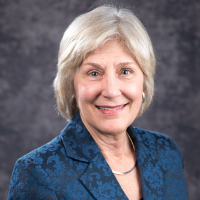 Molly Carnes
Molly Carnes
Professor of Medicine, Psychiatry, and Industrial & Systems Engineering
University of Wisconsin-Madison
Dr. Molly Carnes is a faculty member in the Division of Geriatrics and Gerontology within the Department of Medicine, the Virginia Valian Professor, and the founder and director of the Center for Women’s Health Research at UW-Madison. Dr. Carnes has affiliate appointments in the Department of Psychiatry and the Department of Industrial and Systems Engineering, where she is co-director of the Women in Science and Engineering Leadership Institute (WISELI) and the Wisconsin Alliance for Minority Participation (WiscAMP) in the College of Engineering.
Dr. Carnes is a Fellow of the Wisconsin Academy of Sciences, Arts and Letters and the Association for Women in Science (AWIS). She is the recipient of many national awards in recognition of her outstanding leadership and research, including the Joseph T. Freeman Award from the Gerontological Society of America; the NIH Director’s Pathfinder Award to Promote Scientific Workforce Diversity; the Linda Joy Pollin Women’s Heart Health Leadership Award from the Cedars-Sinai Heart Institute at Cedars-Sinai Medical Center; the American Medical Women’s Association’s President Award; and the Bernadine Healy Women’s Health Visionary Leadership Award, Academy of Women’s Health.
 Michael Lauer
Michael Lauer
Deputy Director of Extramural Research
National Institutes of Health
Michael Lauer, M.D., is the Deputy Director for Extramural Research at the National Institutes of Health (NIH), where he serves as the principal scientific leader and advisor to the Director of the NIH on all matters relating to the substance, quality, and effectiveness of the NIH extramural research program and administration. He received education and training at Rensselaer Polytechnic Institute, Albany Medical College, Harvard Medical School, Harvard School of Public Health, and the NHLBI’s Framingham Heart Study. He spent 14 years at Cleveland Clinic as Professor of Medicine, Epidemiology, and Biostatistics. During his tenure at the Clinic, he led a federally funded internationally renowned clinical epidemiology program that applied big data from large-scale electronic health platforms to questions regarding the diagnosis and management of cardiovascular disease. From 2007 to 2015 he served as a Division Director at the National Heart, Lung, and Blood Institute (NHLBI), where promoted efforts to leverage big data infrastructure to enable high-efficiency population and clinical research and efforts to adopt a research funding culture that reflected data-driven policy. He has received numerous awards including the NIH Equal Employment Opportunity Award of the Year and the Arthur S. Flemming Award for Exceptional Federal Service in recognition of his efforts to grow a culture of learning and accountability.
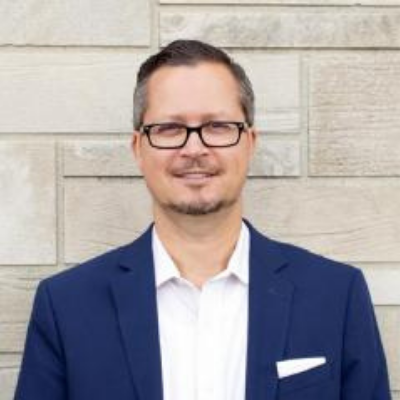 James Mohler
James Mohler
Research Integrity Officer & Associate Dean of the Graduate School
Purdue University
Dr. James (“Jamie”) Larue Mohler is professor of Computer Graphics Technology (CGT) at Purdue University. Dr. Mohler began his academic career in 1994 and was promoted to professor in 2009. Past administrative roles include senior research scientist of multimedia and web development in Information Technology at Purdue (2002-03); director of the ITaP Informatics Group (2003-05); assistant department head, CGT (2008-09); associate department head, CGT (2009-11); interim associate dean for graduate programs, Purdue Polytechnic Institute (2011); associate dean of academic affairs and diversity, Polytechnic (2011-15); interim director of the Division of Interdisciplinary Technology Studies, Polytechnic (2015). He is currently serving as Research Integrity Officer for Purdue University and Associate Dean of the Graduate School with a focus on administrative activities related to academic governance, IT and data analysis, and thesis/dissertation deposit and dissemination.
Dr. Mohler is a Purdue University Faculty Scholar, a member of the Purdue University Teaching Academy and a past faculty fellow for the Discovery Learning Center and Owen and Tarkington Residence Halls. Dr. Mohler is a member of Purdue’s ADVANCE team and has served as a Diversity Catalyst at Purdue University for the last two years. He has served as a facilitator for diversity training at the university and has been actively engaged in the college relative to efforts regarding equity, inclusion and advocacy for faculty, staff and students.
Over the last 10 years Jamie has taught graduate courses on research methods, perception and visual intelligence, and university honors courses on various computer graphics topics. He has or continues to work with 10 PhD students as committee chair or co-chair. He has or continues to serve as a member of 10 other PhD or MS graduate committees. He continues to teach the required course for all technology MS and PhD students, TECH 646 – Research Methods for Business and Industry.
Dr. Mohler has authored, co-authored, or contributed to over 21 texts related to computer graphics and media development and over 71 articles for refereed, reviewed, or trade publications. He has been the recipient of 1.5 million dollars in grants.
 David Resnik
David Resnik
Bioethicist
National Institutes of Health
David B. Resnik is a Bioethicist at the National Institute of Environmental Health Sciences, National Institutes of Health. Dr. Resnik has an M.A. and Ph.D. in philosophy from the University of North Carolina at Chapel Hill, a J.D. from Concord University School of Law, and a B.A. in philosophy from Davidson College. Dr. Resnik has published over 300 articles and 10 books on various topics in philosophy and bioethics and is a Fellow of the American Association for the Advancement of Science. He serves on several editorial boards and is an Associate Editor of the journal Accountability in Research.
Panelists
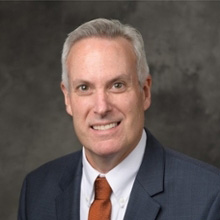 Christopher Agnew
Christopher Agnew
Associate Vice President for Research
Professor of Social Psychology
Purdue University
Christopher R. Agnew is Professor of Psychological Sciences at Purdue University. He received his undergraduate degree from Georgetown University and his Ph.D. in Social Psychology from the University of North Carolina at Chapel Hill. His research focuses on close, interpersonal relationships and the use of relational models to understand broader social and health processes. He has published and presented his research widely, and has received funding from federal agencies (e.g., National Institutes of Health), private foundations (e.g., Robert Wood Johnson Foundation) and corporations (e.g., Facebook). Dr. Agnew has served on the editorial boards for the Journal of Personality and Social Psychology, Personality and Social Psychology Bulletin, and Personal Relationships, and as General Editor of the Cambridge University Press book series Advances in Personal Relationships. He was the recipient of the Early Career Award from the Relationships Researchers Interest Group of the Society for Personality and Social Psychology. He is a Fellow of the Association for Psychological Science, American Psychological Association, International Association for Relationship Research, Midwestern Psychological Association, the Society of Experimental Social Psychology, and the Society for Personality and Social Psychology. He served as President of the International Association for Relationship Research. Dr. Agnew served as Head of Psychological Sciences at Purdue from 2009 to 2017, and has served as Associate Vice President for Research for Purdue University since 2017.
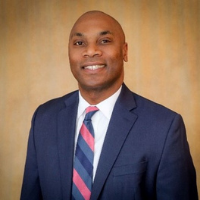 Jabbar R. Bennett
Jabbar R. Bennett
Vice President and Chief Diversity Officer
Michigan State University
Jabbar R. Bennett, Ph.D. is MSU’s vice president and chief diversity officer. Bennett works to advance MSU’s diversity, equity, and inclusion strategic priorities along with staff in the Office for Inclusion and Intercultural Initiatives (I3), and partnership among senior executives, deans, faculty, staff, students, and alumni. Bennett is also a professor of medicine in the College of Human Medicine.
Prior to joining MSU in December 2020, Bennett served as the inaugural associate provost for diversity and inclusion, and chief diversity officer at Northwestern University. Previously, he worked as associate dean of the Graduate School, and associate dean for diversity in the Division of Biology and Medicine at Brown University. Bennett also held administrative appointments at Brigham and Women’s Hospital, Harvard Medical School, and United Way of Massachusetts Bay and Merrimack Valley, and served on the faculty at Harvard, Brown, and Northwestern.
Bennett received a bachelor’s degree in biology and a minor in Spanish from North Carolina Agricultural and Technical State University and earned a doctoral degree in biomedical sciences from Meharry Medical College. Bennett completed postdoctoral research training at Harvard Medical School and is an alumnus of the Harvard University Administrative Fellows Program and Massachusetts Education Policy Fellowship Program. Listen to Bennett’s welcome interview with Russ White.
 Tara Behrend
Tara Behrend
Associate Professor
Industrial-Organizational Psychology
Tara S. Behrend’s research interests center around understanding and resolving barriers to computer-mediated work effectiveness, especially in the areas of training, recruitment, and selection. She is also interested in career decision-making, specifically relating to STEM fields; her work in this area is funded by a research grant from the National Science Foundation. She provides psychometric consulting for the American Council on Education and has consulted for a wide range of public and private organizations in the areas of training, skills development and selection. She is an active member of the American Psychological Association, the Association for Psychological Science, and the Society for Industrial and Organizational Psychology, and has presented nearly fifty papers at conferences for these organizations.
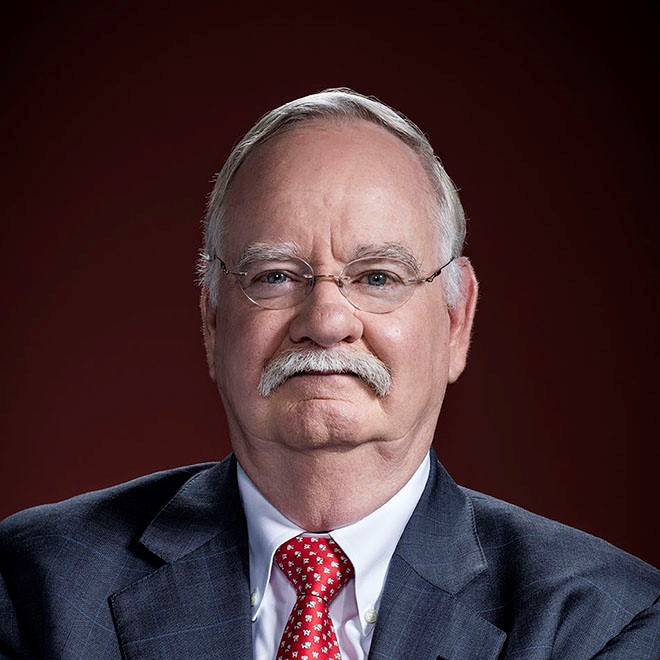 Robert Brown
Robert Brown
President
Boston University
Dr. Robert A. Brown, a distinguished chemical engineer and educator, became President of Boston University in September 2005. As President, Dr. Brown emphasizes the continued improvement of academic quality in all domains through the establishment of clear priorities, benchmarking, and periodic review. He also works to underscore the central importance and interrelationship of teaching and research, with particular focus on stimulating interdisciplinary study and spanning all the University’s disciplines and programs.
A Texas native, Dr. Brown earned BS and MS degrees in chemical engineering at the University of Texas at Austin. He received his PhD in chemical engineering from the University of Minnesota, where he worked under the guidance of Professor L. E. Scriven. He is a member of the American Academy of Arts & Sciences, the National Academy of Engineering, and the National Academy of Sciences, among other professional societies.
Prior to his appointment at Boston University, Dr. Brown was provost and Warren K. Lewis Professor of Chemical Engineering at the Massachusetts Institute of Technology. He joined the MIT faculty in 1979, beginning a distinguished career in education and research. He has published more than 250 papers in areas related to mathematical modeling of transport phenomena in materials and served as executive editor of the Journal of Chemical Engineering Science from 1991 to 2004. In 2008, Dr. Brown was named one of the top 100 Chemical Engineers of the Modern Era by the American Institute of Chemical Engineers.
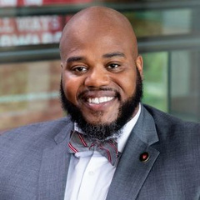 LaVar Charleston
LaVar Charleston
Chief Diversity Officer, Deputy Vice Chancellor for Diversity and Inclusion
University of Wisconsin-Madison
Dr. LaVar J. Charleston, an accomplished researcher, scholar and practitioner with nearly two decades of experience related to diversity, equity, and inclusion in higher education and the workforce, leads the University of Wisconsin–Madison’s diversity and inclusion efforts.
Charleston is the university’s chief diversity officer, also holding the titles of deputy vice chancellor for diversity and inclusion, vice provost, and Elzie Higginbottom Director of the Division of Diversity, Equity and Educational Achievement, or DDEEA.
As chief diversity officer, Charleston provides overall leadership for the university’s efforts to create a diverse, inclusive, and successful learning and work environment for all students, faculty, staff, alumni, and others who partner with the university. As deputy vice chancellor for diversity and inclusion, he partners with schools, colleges and other administrative units across campus while overseeing the units that comprise the DDEEA as vice provost and director.
A native of Detroit, Charleston most recently served as the inaugural associate dean for equity, diversity, and inclusion at UW-Madison’s School of Education, where he is a clinical professor of higher education in the Department of Educational Leadership and Policy Analysis. Prior to that role, he served as the inaugural assistant vice chancellor for student diversity, engagement, and success at the University of Wisconsin–Whitewater.
Charleston earned a master’s degree and Ph.D. from the UW-Madison School of Education and has served in various capacities, developing and offering courses at the graduate and undergraduate level and serving as a senior level administrator. Charleston has been a part of 12 education-related start-ups and has collaborated on multimillion-dollar projects with diverse faculty, staff, students, and university partners from a range of disciplines, departments, and institution types (e.g., HBCUs, PWIs, 2-year institutions) throughout the country and the world. Through this work, he has been instrumental in receiving, facilitating, and/or evaluating research and education grants, projects and awards totaling over $10 million, and was recently appointed to the Governor’s Advisory Council on Equity and Inclusion, where he was also named chair of the Economic and Business Development sub-committee for the State of Wisconsin. In 2018, Charleston was named one of the State of Wisconsin’s most influential Black leaders.
Charleston has a long affiliation with the Wisconsin Center for Education Research, where he helped found Wisconsin’s Equity and Inclusion Laboratory (Wei LAB), a multimillion-dollar social science research laboratory, and held several leadership positions therein. His research focuses on diversity, access and inclusion within the science, technology, engineering, and mathematics (STEM) disciplines. He is the author or co-author of 50 manuscripts, including the book “Advancing Equity and Diversity in Student Affairs.” He has delivered over 100 presentations at local, national, and international venues, all to ensure that research, teaching, leadership and service practices are in line with empirically based, data-driven solutions that positively impact the educational development, outcomes, and equitable success of diverse students, faculty, and concerned citizens. Charleston was a Division I college football player and continues to have a passion for physical activity, music, and other forms of artistic expression.
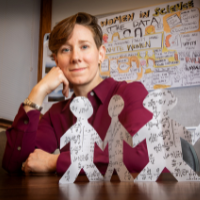 Kathryn Clancy
Kathryn Clancy
Associate Professor of Anthropology
University of Illinois Urbana-Champaign
Dr. Clancy’s research, teaching, and service all focus in varying ways on reproductive justice. Broadly speaking she is interested in how environmental stressors (e.g., those related to energetics, immune function, and psychosocial stress) influence the reproductive functioning of women and gender minorities. At the macro level this means looking at the major stressors that might influence reproductive functioning, such as sexual harassment. At the micro level this means exploring the inflammatory mechanisms that mediate the relationship between many stressors and reproduction.
Dr. Clancy’s research had broad implications for the public and for science: she has provided Congressional testimony, co-authored a National Academies report on sexual harassment of women in STEM, and is writing a book on misunderstandings of the menstrual cycle (forthcoming in 2020). Dr. Clancy has consulted on two Congressional bills on sexual harassment in science (H.R. 6161, H.R. 36). She has given talks and run workshops at national and international events, and provided expertise on legal cases involving sexual harassment in science.
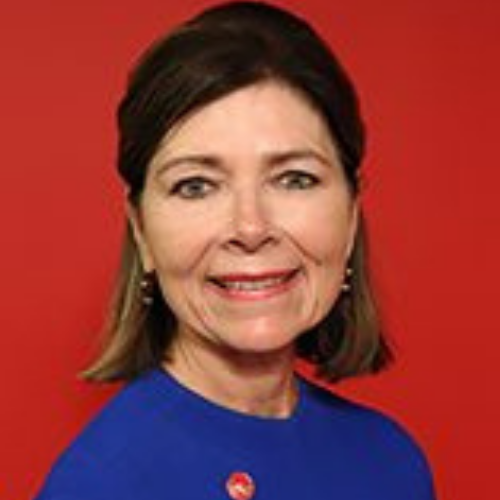 Joanna Groden
Joanna Groden
Vice Chancellor for Research
University of Illinois Chicago
Dr. Joanna Groden currently serves as the Vice Chancellor for Research at the University of Illinois Chicago. She completed her BA degree in Biology at Middlebury College, a PhD in Cell Biology and Genetics at the Cornell University Graduate School of Medical Sciences, and a postdoctoral fellowship in the Department of Human Genetics/Howard Hughes Medical Institute at the University of Utah.
Prior to coming to UIC, Dr. Groden served as Professor and Vice Chair for Academic Affairs in the Department of Cancer Biology & Genetics at The Ohio State University (OSU) College of Medicine. She joined The Ohio State University faculty in 2005 and served in various administrative roles in the College of Medicine, such as Associate Dean for Basic Science Research from 2007 to 2011, Associate Dean for Graduate Education from 2011 to 2013; and finally as Vice Dean for Research from 2013 to 2017. Most recently, she served as the Co-Director of the Biomedical Sciences Graduate Program, Director of the Pelotonia Fellowship Program and the Education Program Leader for the OSU CTSA-supported Center for Clinical and Translational Sciences. Prior to her tenure at OSU, she served on the Molecular Genetics, Biochemistry, and Microbiology faculty of the University of Cincinnati College of Medicine from 1993 to 2005 and, during her last two years there as the College of Medicine Vice Dean for Research. She was previously appointed as an Assistant Investigator of the Howard Hughes Medical Institute (1997-2004).
Dr. Groden is a human geneticist, who is internationally recognized for her research in identifying key genetic causes of colon cancer and other inherited cancers through the identification and characterization of two human disease genes. Her research has been continuously funded by the National Institutes of Health since 1994. Dr. Groden has served on several boards and advisory panels including the NCI Board of Scientific Counselors, and actively participates in the peer review process for AACR, NIH, DOD, and many other national and international funding agencies and scientific journals. With numerous publications and patents, Dr. Groden has been elected as a Fellow of the American Association for the Advancement of Science (AAAS) and a Fellow of the American Gastroenterological Association.
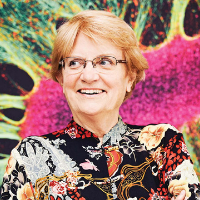 Nancy Hopkins
Nancy Hopkins
Amgen Inc Professor of Biology emerita
Massachusetts Institute of Technology
Nancy Hopkins is Amgen Inc Professor of Biology emerita, MIT. She worked on the genetics of mouse RNA tumor viruses; on the genetics of early vertebrate development using zebrafish; and on the fish as a cancer model.
In 1995 Hopkins chaired an MIT committee that issued the 1999 Report on the Status of Women Faculty in Science at MIT. She then joined MIT’s central administration, under President Charles Vest, as Co-Chair with then MIT Provost Bob Brown of the first Council on Faculty Diversity to address issues identified in the 1999 report and has lectured widely on this work.
Hopkins became an assistant professor at MIT’s Center for Cancer Research in 1973. She used genetics to map RNA tumor virus genes, identifying genes that determine host range and the type and severity of cancers mouse retroviruses cause. Hopkins switched research areas more than a decade later, developing genetic tools for zebrafish research including an efficient method for large-scale insertional mutagenesis. Her lab identified and cloned 25% of the genes essential for early fish development. She is a member of the National Academy of Sciences, a member of the National Academy of Medicine, and a fellow of the American Academy of Arts and Sciences.
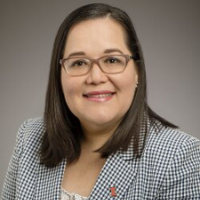 Gioconda Guerra Pérez
Gioconda Guerra Pérez
Executive Associate Vice Chancellor for Diversity
University of Illinois at Urbana-Champaign
Gioconda Guerra Pérez was born in 1973 in Santa Marta, Panama. She gained a strong interest in the social issue of education from a young age. Pérez spent three years at the University of Panama before completing her last year of study on a full-ride scholarship to the University of Louisville, where she earned her bachelor’s degree in journalism. While pursuing her Ph.D. at Louisville, Pérez furthered her interest in sociology and began research on the experiences of Latino immigrants, particularly the effects of labor laws on the Latino immigrant working community. She completed her Ph. D. in Educational Leadership and Organizational Development as well as an M.A in Sociology and Communication, then went on to the University of Indiana Southeast where she continued to work with immigrant students and families. Later, she became the director of La Casa cultural house, a part of the Office of Inclusion and Intercultural Relations at the University of Illinois. There, she works to help Latino students find the support and resources they need to pursue their own educations, boosting the retainment of underrepresented minority students and opening opportunities to achievement that were closed off before.
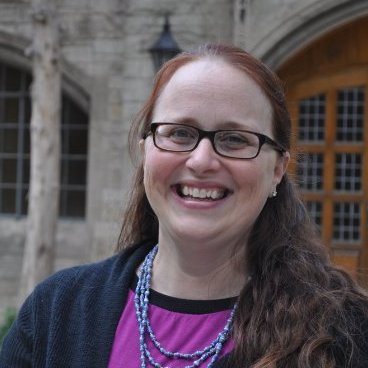 Lauran Qualkenbush (she/her)
Lauran Qualkenbush (she/her)
Director, Office for Research Integrity
Northwestern University
Lauran Qualkenbush is the Director of the Office for Research Integrity and the Research Integrity Officer for Northwestern University. She is responsible for promoting the responsible conduct and appropriate administration of University research and is involved in Responsible Conduct of Research education across the University and coordination of the University’s plan. She oversees the development of research-related training and responds to allegations of research misconduct as well as other types of research non-compliance. She has been in this role and engaged in RCR and research integrity for over 18 years. Ms. Qualkenbush also is a founding member and the current President of the Association for Research Integrity Officers (ARIO). She is a teaching RIO for the HHS ORI RIO boot camps and has served on multiple HHS ORI review panels.
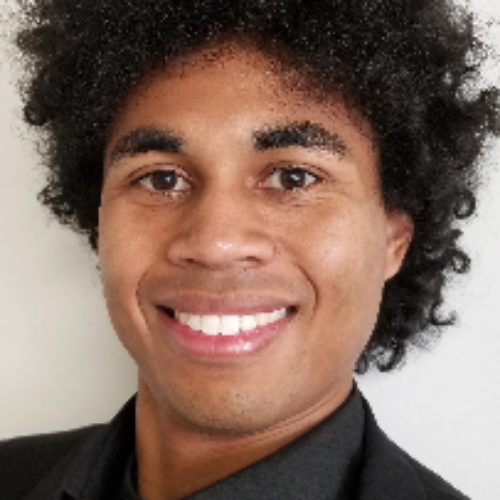 Matthew Warren (he/him/his)
Matthew Warren (he/him/his)
Postdoctoral Scholar
University of Wisconsin-Madison
Matthew F. Warren is a Metabolism and Nutrition Training Program (MANTP) postdoctoral trainee at the University of Wisconsin-Madison. Matthew started his college education at West Hills College Lemoore where he completed an associate’s degree in biology and a second associate’s degree in liberal arts-math and sciences. He transferred to the University of California-Davis where he started doing research in avian immunology and nutrition and he received a bachelor’s degree in animal science. Matthew made a tremendous change in environment with moving to Auburn, AL to continue his education as a master’s student in biological sciences at Auburn University. His master’s thesis explored how maternal dietary protein intake affected the gut and milk microbiota of rat mothers and their pups gut microbiota. Matthew completed his PhD in nutrition from North Carolina State University and his PhD research examined vitamin D metabolism on physiology in chickens.
Matthew works in Federico Rey’s lab in the Department of Bacteriology. Matthew’s current research is evaluating host genetics and dietary effects on gut microbial density and microbial short-chain fatty acids output. Matthew is aiming to be a professor at a research institution to mentor students and conduct research on precision nutrition and the gut microbiome.
 Lora Weiss
Lora Weiss
Senior Vice President for Research
PennState
Lora G. Weiss, Ph.D., was appointed senior vice president for research at The Pennsylvania State University in September 2019. In her role, she is the principal academic and administrative officer for Penn State’s Office of Research. Weiss oversees the research work of eleven academic colleges, seven university-wide interdisciplinary research institutes, a university affiliated research laboratory for the Department of Defense, and offices for sponsored programs, research protections, industry partnerships, technology transfer, innovation, and commercialization.
Prior to serving as senior vice president for research, Weiss spent 13 years at Georgia Tech, where most recently, she was the interim director of the Georgia Tech Research Institute (GTRI). Weiss is an accomplished scientist and educator with more than 30 years of experience in higher education. With a background in robotics and unmanned systems, Weiss has centered her research on advancing the capabilities of unmanned air, ground, sea surface, and undersea vehicles. Weiss served on the Board of Directors for the Association of Unmanned Vehicle Systems International (AUVSI), which is the world’s largest unmanned systems organization. She was on the technical advisory board of the National Robotics Technology Consortium. She was an Executive Board Member for NDIA’s Undersea Warfare Division; she supported several National Academies’ studies; and she supported the Center for New American Security’s Future Foundry Task Force. She has been author of a continuous stream of highly regarded journal publications, including her 1994 seminal paper on the cover of the internationally renowned IEEE Signal Processing magazine and again in 2011 for her cover story in IEEE Spectrum.
In 2014, Weiss was named Regents’ Researcher, which is the highest recognition bestowed by the University System of Georgia to research faculty members. In 2012, Weiss received the AUVSI Foundation Award for Academic Champion. In 2012, she also received Georgia’s Women in Technology Woman of the Year Award for Medium-Sized Businesses, and in 2013, she received a Letter of Commendation from the Chief of Naval Operations Strategic Studies Group. Weiss also holds a patent for an unmanned underwater vehicle.
Weiss received her Ph.D. in acoustics from Penn State, her masters in mathematics from UCLA, and her bachelors in mathematics from Boston University.
Facilitators
 Mike Andrews
Mike Andrews
Research Integrity Officer
University of Iowa
Mike Andrews is the Research Integrity Officer for the University of Iowa. Prior to this role, he served for nine years as the training compliance manager for the administrative office of the Institutional Animal Care and Use Committee (IACUC). Andrews holds a Bachelor of Science degree in microbiology and an MBA in operations management, both from the University of Iowa.
While with IACUC, Andrews earned professional certifications as a Laboratory Animal Technologist (LATG) and a Certified Professional IACUC Administrator (CPIA). He also established the Lab Manager Stakeholder Group, a committee of lab managers from across campus that make recommendations on Lab Manager Training seminars and provide input on policies, guidelines, and guidance documents from the IACUC and the Office of Animal Resources (OAR). For 23 years before that, he was a research assistant in several biomedical research labs, serving as a lab manager for much of that time.
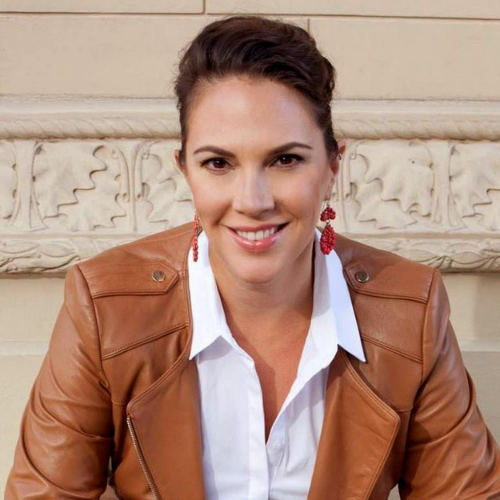 Mariah Bauer – Conference Planning Committee
Mariah Bauer – Conference Planning Committee
Director of Responsible Conduct of Research (RCR) Programming
University of Maryland
Mariah has been at UMD since 1999 and has had broad experience working at the college level, at the department level, in the Division of Research, and in Academic Affairs. She works closely with the Provost and the Provost’s senior staff on myriad strategic business, research, and academic development initiatives. Mariah was recently asked to serve as the inaugural Director of Responsible Conduct of Research (RCR) programming at the University of Maryland, a mission critical function that involves working closely with Melissa Thompson, J.D., UMD’s Research Integrity Officer (RIO), to develop a novel and holistic program and frame the infrastructure necessary to generate and disseminate knowledge with integrity and rigor.
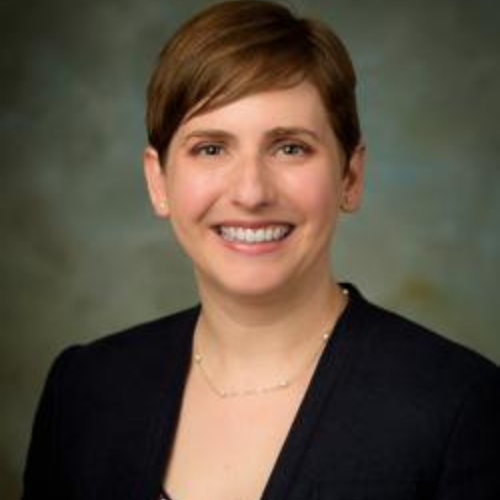 Katherine “Katie” Bode-Lang
Katherine “Katie” Bode-Lang
Director of Research Education, Quality, and Integrity Program
Pennsylvania State University
Katie Bode-Lang is the Director of Research Education, Quality, and Integrity in the Office for Research Protections at Penn State University. Her team oversees research ethics education for the University, including the Research Integrity & Scholarly Ethics (RISE) program. The team also handles quality assurance and research misconduct. Katie has worked for the office since 2014. Previously, she was the assistant director of a research center in the College of Health and Human Development and taught in the College of Liberal Arts.
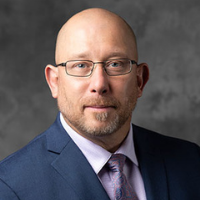 Sean Courtney
Sean Courtney
Research Training Manager – Responsible Conduct of Research
Purdue University
Dr. Sean Courtney holds a joint appointment at Purdue University in West Lafayette, IN within the Office of the Executive Vice President for Research and Partnerships and the Office of the Provost. His primary responsibilities include directing research compliance and field-specific training. He has 15+ years of experience conducting biomedical research in the areas of genetics and cancer genomics. Dr. Courtney is currently utilizing his skills and professional experiences to foster an ethical research environment through developing, implementing, and evaluating innovative policies and standards.
In his current role as the Research Compliance Manager, Sean ensures all researchers comply with responsible conduct of research regulations from federal, state, local, and university levels. He primarily trains and mentors researchers–at all career stages–in the areas of integrity, ethics, and reproducibility, which incorporates experimental design, data collection, analysis, and reporting results in a clear and ethical manner. Dr. Courtney also assists with investigations involving Research Integrity and Misconduct allegations within the Purdue University system and represents the University on the Big Ten Academic Alliance.
Prior to his current role, Sean was affiliated with the Indiana University School of Medicine as an Assistant Research Professor and completed two postdoctoral scholar positions at the Medical University of South Carolina. His doctoral degree was conferred by Texas A&M University.
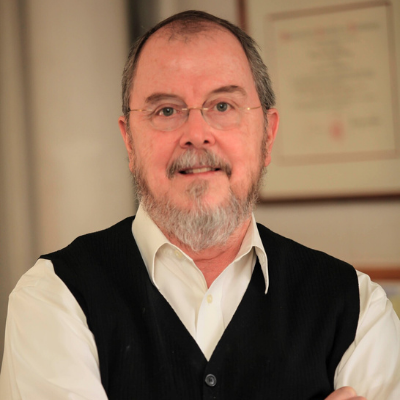 Philip DeShong
Philip DeShong
Professor of Chemistry & Biochemistry
University of Maryland
Dr. Philip DeShong is a Professor of Chemistry and Biochemistry at the University of Maryland. In addition to his academic appointment, Dr. DeShong serves as the Chief Compliance Officer, and Chair of the Conflict of Interest and Institutional Conflict of Interest Committees. In conjunction with Dr. Robert Dooling, he has presented courses and workshops on Responsible Conduct of Research in the United States and Ireland. Dr. DeShong is Fulbright Fellow, a Fellow of the American Association for the Advancement of Science and the New York Academy of Sciences. Dr. DeShong is also Founder and President of SD Nanosciences.
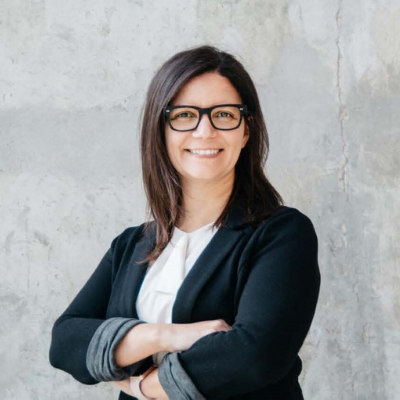 Becca Hopson – Conference Planning Committee
Becca Hopson – Conference Planning Committee
Assistant Director of Education and Outreach
Indiana University
Becca Hopson serves in the Office of Research Compliance through the Vice President for Research promoting research integrity through education, training and outreach for Indiana University.
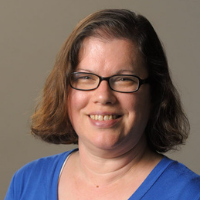 Patty Jones
Patty Jones
Associate Director for Research, Beckman Institute
University of Illinois Urbana-Champaign
After graduating with a bachelor’s degree in psychology from the U. of I., Jones earned an M.S. and a Ph.D. in industrial and systems engineering from the Georgia Institute of Technology. She later became a professor of industrial engineering at the U. of I., and then left for California to work at NASA’s Ames Research Center from 2001-2012, where she served in several different roles, including the last one as the deputy director of exploration technology.
She’s been serving in her current position since 2012. In her job, she oversees the research facilities at the Beckman Institute, including the Biomedical Imaging Center, the Microscopy Suite, the Visualization Laboratory and the Illinois Simulator Laboratory. She also is the project manager for the INSIGHT brain-training project, which is headed by professor Aron K. Barbey. The project is funded by the Intelligence Advanced Research Projects Activity, under the Office of the Director of National Intelligence.
Jones assists professors and students in writing proposals to gain research funding; her previous job as a U. of I. professor gave her some familiarity with this. Reporting directly to Beckman’s director, she helps write the annual campus budget report and the annual report to the Beckman Foundation.
 Alison Kerr – Conference Planning Committee
Alison Kerr – Conference Planning Committee
Postdoctoral Research Assistant, Weldon School of Biomedical Engineering
Purdue University
Dr. Kerr completed her PhD in Industrial-Organizational Psychology and the University of Tulsa in Tulsa, Oklahoma. She also has a M.A. degree in industrial-organizational psychology from The University of Tulsa and a B.A. degree in psychology from the University of Southern California in Los Angeles, California. Her dissertation research was a comprehensive evaluation of a professional ethics training program which utilizes expert-witness role-play for engineering education. Her research interests include training development and evaluation as explored across a variety of academic disciplines and organizational settings. Her most recent projects have focused on developing engineering and science students’ relevant non-technical professional skills including leadership, creativity and ethical practice and presentation.
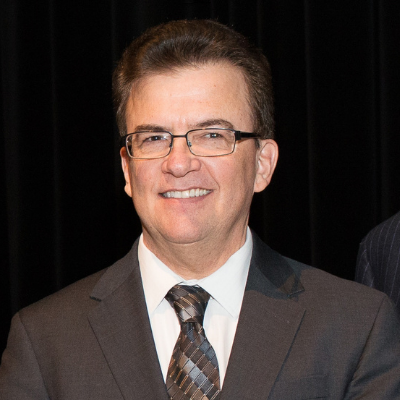 Glenn Krell (he/him/his) – Conference Planning Committee
Glenn Krell (he/him/his) – Conference Planning Committee
Director of Research Integrity
Rutgers University
Glenn Krell is Director of Research Integrity in the Office of Research and Economic Development at Rutgers, The State University of New Jersey. Glenn was the Founding Coordinator of the Big Ten Academic Alliance – Responsible Conduct of Research (BTAA-RCR) Collaborative. The group has held monthly conference calls on RCR topics since 2018 and has hosted discussions with thought leaders in RCR. At Rutgers Glenn is responsible for research misconduct investigations; the financial conflict of interest disclosure program for researchers, and coordination of the RCR education program. Glenn has a master’s in public administration and more than 20 years’ experience as a university research administrator, including working with research faculty at the University of California Berkeley and UCSF.
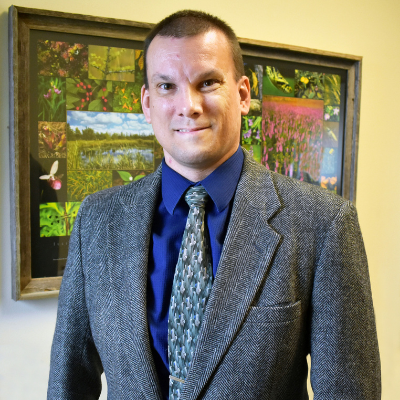 Christopher Lehmann (he/him/his) – Conference Planning Committee
Christopher Lehmann (he/him/his) – Conference Planning Committee
Research Integrity Officer
University of Illinois at Urbana-Champaign
Chris Lehmann serves as the Research Integrity Officer within the Office of the Vice Chancellor for Research & Innovation at the University of Illinois at Urbana-Champaign. He coordinates campus-level Responsible Conduct of Research (RCR) education. He is a Clinical Professor of Civil & Environmental Engineering and a Research Affiliate with the Illinois State Water Survey in the Prairie Research Institute. His expertise is in air pollution, drinking water testing, and laboratory quality management.
Chris received his BS in Civil Engineering from Valparaiso University, and his MS and PhD in Civil & Environmental Engineering from the University of Illinois at Urbana-Champaign. Chris serves as the current Coordinator of the Big Ten Academic Alliance – Responsible Conduct of Research (BTAA-RCR) Collaborative. He is a member of the Association of Research Integrity Officers (ARIO).
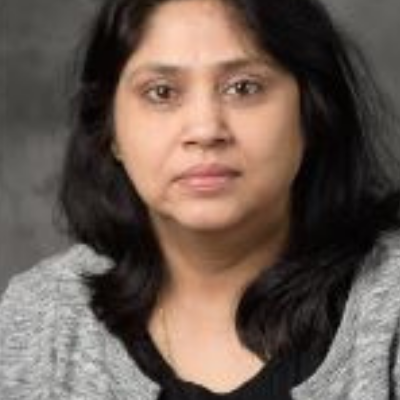 Cecon Mahapatra
Cecon Mahapatra
Senior Compliance Officer
Purdue University
Cecon Mahapatra serves as the Senior Compliance Officer at the Office of Executive Vice President for Research and Partnerships, Purdue University. In her current position, she works in areas of research compliance which includes responsible conduct of research and conflicts of interest. She holds a Ph.D. in Biology from India and completed her post-doctoral training in Molecular Neurogenetics and Toxicology at Purdue University and University of Vermont College of Medicine. Prior to working in Research administration, she worked as a Research Scientist at Purdue University and was involved in research, teaching, and mentoring undergraduate and graduate students in the areas of Molecular Toxicology and Environmental Health.
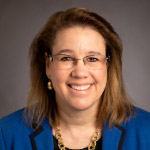 Susan Martinis
Susan Martinis
Vice Chancellor for Research and Innovation
University of Illinois at Urbana-Champaign
Susan Martinis is Vice Chancellor for Research and Innovation at the University of Illinois at Urbana-Champaign, where she provides leadership for the campus-wide interdisciplinary research institutes, promotes new research initiatives, and oversees the administrative and business processes that ensure the safe, ethical, and productive conduct of research at Illinois. Dr. Martinis, the Stephen G. Sligar Professor of Molecular and Cellular Biology, studies the mechanisms, evolution, and biomedical applications of protein synthesis and RNA-protein interactions. She is a successful researcher, engaged in entrepreneurial and corporate partnerships, a committed educator, and an experienced administrator.
Prof. Martinis earned her B.S. from Washington State University (1985) and Ph.D. at the University of Illinois (1990). She then trained at the Massachusetts Institute of Technology as an American Cancer Society Postdoctoral Fellow. She was hired in 1993 at a start-up biotechnology company Cubist Pharmaceuticals as its 3rd employee. Dr. Martinis was awarded the company’s first U.S. patent and National Institutes of Health SBIR grant, before moving to academia at the University of Houston in 1997. Cubist Pharmaceuticals grew to over 600 people, developed the life-saving drug Cubicin, and was acquired in 2014 by Merck Pharmaceuticals. Dr. Martinis also contributed to delineating the mechanism of action for a novel lead antimicrobial drug (AN2690; Rock et al, Science) that was developed by Anacor Pharmaceuticals (acquired by Pfizer in 2016) and made commercially available as the anti-fungal Kerydin in 2014.
Dr. Martinis moved to the University of Illinois in 2005, and in 2009 was promoted to the rank of Professor, as well as appointed Head of the Dept. of Biochemistry and also Head of the Dept. of Medical Biochemistry. Professor Martinis was named a University Scholar, and in 2015 honored by appointment as the inaugural Stephen G. Sligar Endowed Professor in the School of Molecular and Cellular Biology. She is a member of the Center for Biophysics and Quantitative Biology and an Affiliate in the Dept. of Chemistry.
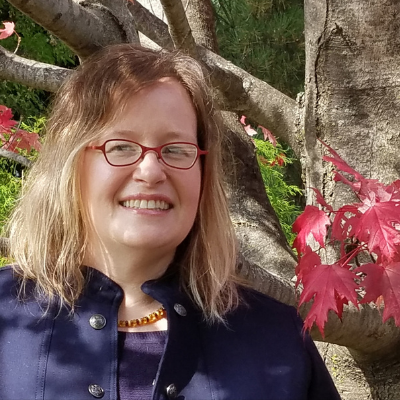 Heather Mc Fadden (she/her/hers) – Conference Planning Committee
Heather Mc Fadden (she/her/hers) – Conference Planning Committee
University of Wisconsin – Madison
Heather McFadden directs responsible conduct of research education within the Office of the Vice Chancellor for Research and Graduate Education at the University of Wisconsin–Madison. In this role, she leads the campus compliance requirements for federal RCR mandates. She also serves as a resource to the NIH T32 community. Her Ph.D. is from UW–Madison in Educational Leadership and Policy Analysis.
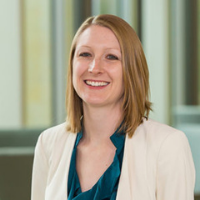 Kristen Pecanac – Conference Planning Committee
Kristen Pecanac – Conference Planning Committee
Assistant Professor of Nursing
University of Wisconsin-Madison
Dr. Pecanac’s research explores interactions among health care practitioners, patients and family members when making decisions related to treatment in the hospital setting. Her intent is to identify communicative practices that promote patient and family participation in decision-making and incorporate these practices into an intervention. The ultimate goal of this research is to facilitate engagement in productive conversations that will lead to reduced stress and suffering for patients and their family members.
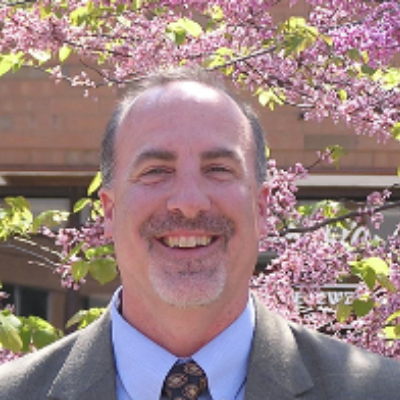 Greg Swain – Conference Planning Committee
Greg Swain – Conference Planning Committee
Professor of Chemistry and Neuroscience Program Member
Michigan State University
Dr. Greg Swain is a Professor of chemistry and a member of the Neuroscience Program at Michigan State University. In addition to his academic appointments, Dr. Swain serves as the Neuroscience Graduate Program Director and as the Responsible Conduct of Research Education Coordinator for The Graduate School. He directs an interdisciplinary research program focused on understanding structure-property relationships of different carbon electrode materials (e.g., conducting diamond and tetrahedral amorphous carbon), as studied by electrochemical and spectroelectrochemical methods, and tailoring the properties of these electrodes for application as chemical and biochemical sensors for health and the environment, and as microelectrodes for neuroanalytical chemistry. He has served or serves in various leadership positions at the national level including as a former Editor and Editor-in-Chief of the scientific journal, Diamond and Related Materials (Elsevier, 2009-2014), a former member of the Committee for Professional Training (American Chemical Society, 2015-2019), and current Editor for the journal, Electroanalysis (Wiley). At the university level, he served as an At-large Member of the University’s Steering Committee and Faculty Senate (MSU, 2017-2019) and as an Academic Advancement Network Fellow (MSU, 2018-2019). He is a Fulbright Fellowship recipient and a member of the American Chemical Society, Electrochemical Society, International Society of Electrochemistry, and National Association of Corrosion Engineers.
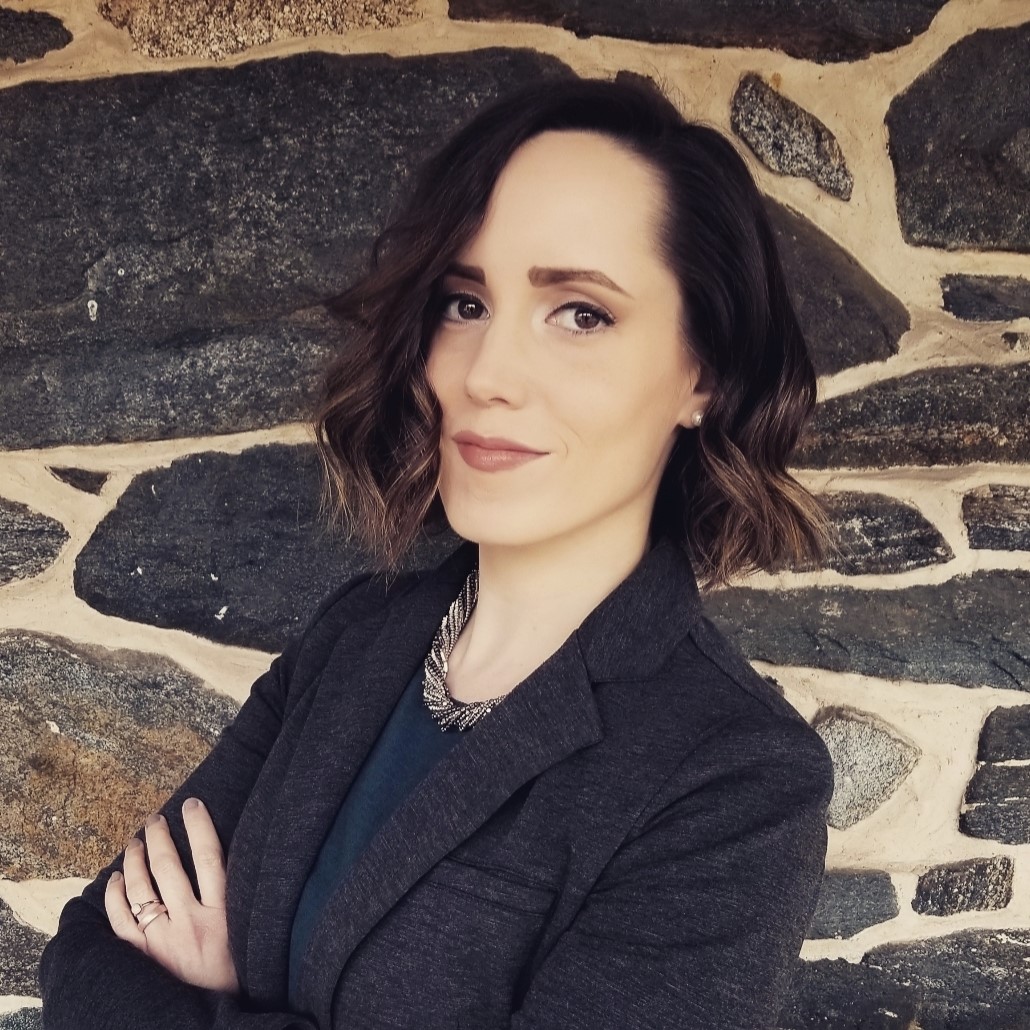 Melissa Thompson
Melissa Thompson
Research Integrity Officer
University of Maryland, College Park
Melissa Thompson is the Research Integrity Officer for the University of Maryland, College Park (UMD). In addition to handling cases of research and scholarly misconduct, she coordinates with various institutional offices and committees on other efforts related to fostering research integrity at UMD, including the identification of associated policy and program needs, and is actively involved in the development of UMD’s responsible conduct of research (RCR) programming.
Melissa was previously the Director of Research Integrity at the Johns Hopkins University School of Medicine, handling cases of research and professional misconduct and overseeing the RCR program, after initially serving as the school’s Assistant Director of Outside Interests, working on issues related to conflicts of interest in research. Prior to joining JHU, Melissa practiced law with a general litigation firm in Towson, Maryland. She also worked in the field of journalism, most recently as the Assistant Managing Editor of The American Prospect.
Melissa received her juris doctorate from the University of Maryland School of Law, along with a certificate in health law. She received her bachelor’s degree in political science from Salisbury University. Melissa is a member of the Association of Research Integrity Officers.
